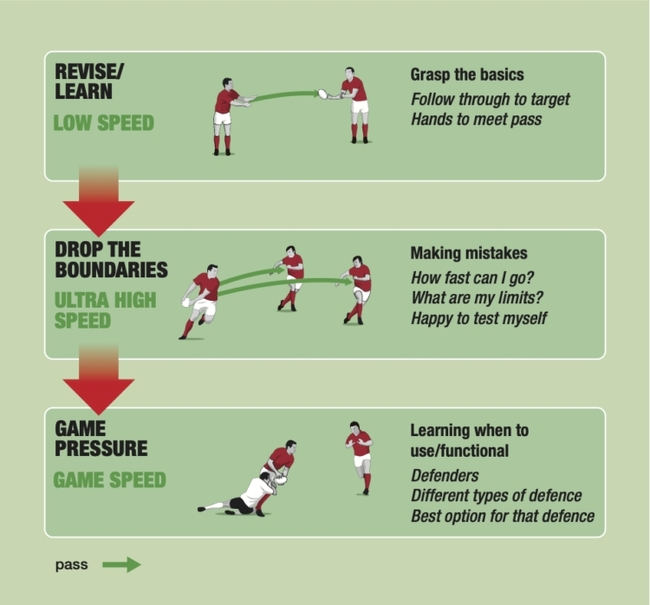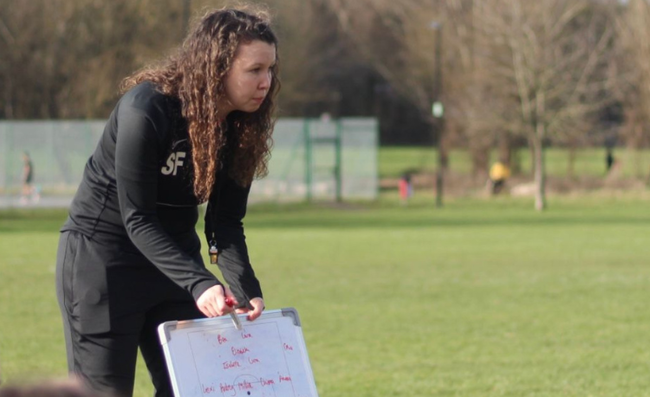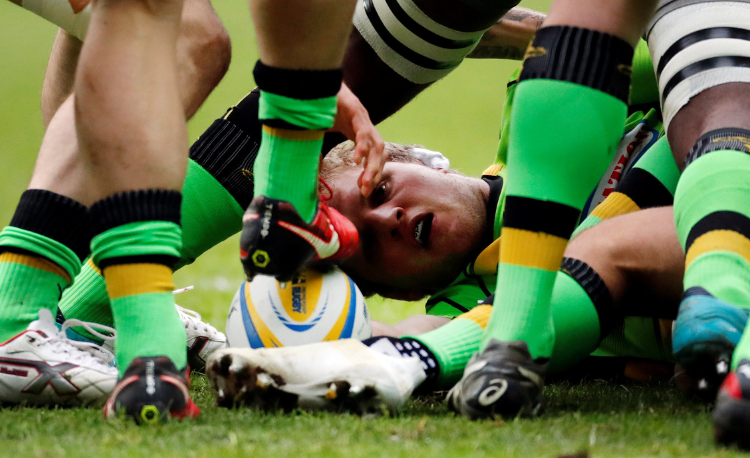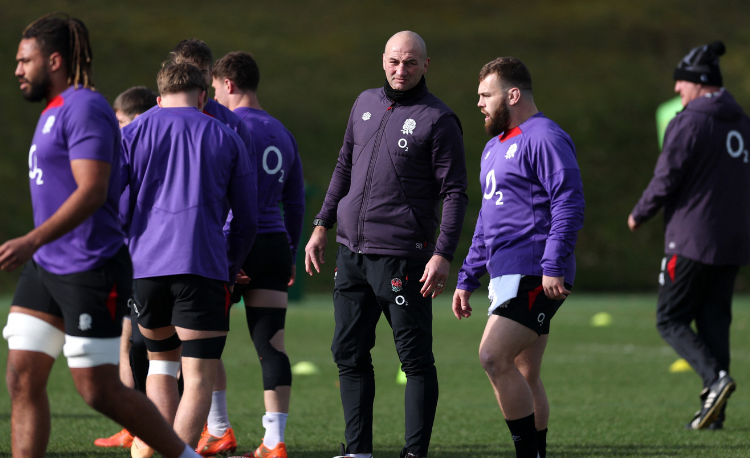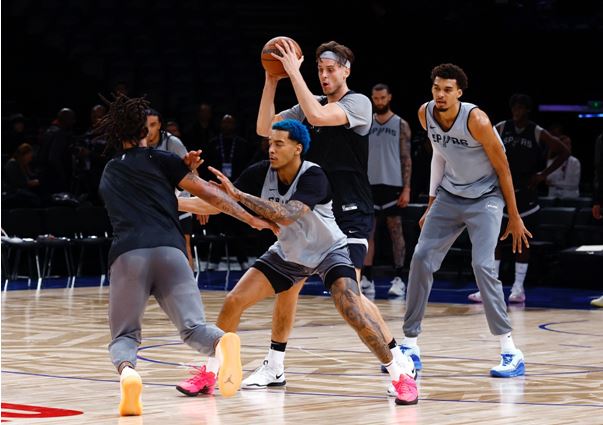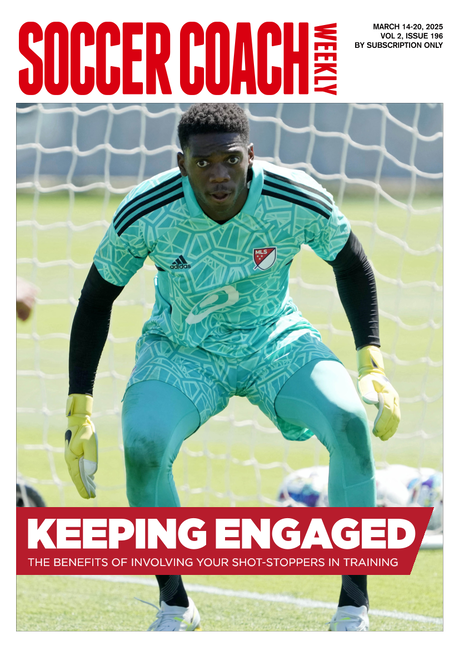5 steps on how a good coach can be good teacher
Joe Harris reviews Craig Stewart’s academic paper on why good coaches must be good teachers, with five key steps to achieving this.

In a recent article published by the University of Montana, Craig Stewart, the college’s professor of sports coaching and preparation, stresses the importance of foundational teaching skills in the repertoire of any sports coach.
Stirred by the dying trend of qualified schoolteachers transferring their invaluable skills to the coaching of young players, a trend that has become increasingly eclipsed by the proliferation of private sports in the US and, with that, a shift of focus onto financial gain, Stewart’s article identifies the decline in the training of coaches to be a significant “threat to the physical, mental and emotional development of young players”.
Alongside the central issue taken with the side-lining of fundamental teaching skills at the hands of privatisation in sports coaching, Stewart notes his concerns over the increasingly “incestual” nature of sports science publications and the sharing of results. These publications today tend to take more of an academic approach, using stilted technical and statistical language to communicate rudimentary ideas. The regrettable outcome of this is that coaches at a more practical level fail to find the time, interest, or knowledge to read, understand or apply current findings to their own coaching.
Stewart emphasises how qualitative research carried out by sports coaching researchers involving the ranking of characteristics by all key stakeholders in youth sport: administrators; players; teachers, have consistently highlighted a preference for coaches who can teach. So, the education and development of coaches therefore requires extensive and practical development of their teaching abilities.
However, Stewart recognises how the defining of what makes a good teacher can be “problematic” at best. So, here are five of the pillars that he identifies as being integral to the foundations of a good teacher:
The youth of today are technically gifted, but often socially lacking, so an understanding of the society/culture in which they come from, one of “immediate gratification” and depleted attention spans, is vital. With those from private clubs often possessing beliefs of entitlement and superiority as an additional obstacle, today’s youth must be taught that advanced skills are learned with time and effort. Even then, ‘success’ is not guaranteed.
Perhaps Stewart’s most compelling piece of advice: coaches, parents, and spectators must redefine ‘success’. ‘Winning’ is often over-accentuated by adults in the players’ world when coaching at younger, developmental levels. Research has shown numerous former athletes to rank “a stress on winning” last in a list of preferred coaching characteristics. Over-demanding coaches and parents have therefore been integral to the curtailing of many young athletes’ careers.
Coaches must be matched appropriately to the level they are coaching at (see original article to read Stewart’s full classification). A good coach at one level may not be a good fit at another, therefore it is of benefit to all parties involved to understand the fundamental differences of these levels: “failure has serious repercussions to the uninformed because how ‘success’ is defined at each level”.
Knowledge of the game coached is, of course, important. However, it’s never been easier to learn this information online. Good coach training doesn’t focus on teaching skills that can be learnt on the internet; rather, it is “more important to know the athletes and how to coach”.
Simply, coaches must show that they genuinely care for and about their athletes. The relationship between coach and player should top the game/result itself. The more competitive sport becomes, the more difficult it is to sustain this relationship due to pressures on winning, but a good coach will fight hard to overcome this difficulty.
Each of these pillars is vital to the foundations of a good coach. Stewart concludes his article with a useful mantra: “it is not what coaches do but how they can teach that makes the greatest impact on players and their teams”.
 Citation: Stewart, C. (2021). They say they can coach, but can they teach? Academia Letters, Article 2110.
Citation: Stewart, C. (2021). They say they can coach, but can they teach? Academia Letters, Article 2110.
.

In a recent article published by the University of Montana, Craig Stewart, the college’s professor of sports coaching and preparation, stresses the importance of foundational teaching skills in the repertoire of any sports coach.
Stirred by the dying trend of qualified schoolteachers transferring their invaluable skills to the coaching of young players, a trend that has become increasingly eclipsed by the proliferation of private sports in the US and, with that, a shift of focus onto financial gain, Stewart’s article identifies the decline in the training of coaches to be a significant “threat to the physical, mental and emotional development of young players”.
Alongside the central issue taken with the side-lining of fundamental teaching skills at the hands of privatisation in sports coaching, Stewart notes his concerns over the increasingly “incestual” nature of sports science publications and the sharing of results. These publications today tend to take more of an academic approach, using stilted technical and statistical language to communicate rudimentary ideas. The regrettable outcome of this is that coaches at a more practical level fail to find the time, interest, or knowledge to read, understand or apply current findings to their own coaching.
Stewart emphasises how qualitative research carried out by sports coaching researchers involving the ranking of characteristics by all key stakeholders in youth sport: administrators; players; teachers, have consistently highlighted a preference for coaches who can teach. So, the education and development of coaches therefore requires extensive and practical development of their teaching abilities.
However, Stewart recognises how the defining of what makes a good teacher can be “problematic” at best. So, here are five of the pillars that he identifies as being integral to the foundations of a good teacher:
1 Knowledge and understanding of today’s youth
The youth of today are technically gifted, but often socially lacking, so an understanding of the society/culture in which they come from, one of “immediate gratification” and depleted attention spans, is vital. With those from private clubs often possessing beliefs of entitlement and superiority as an additional obstacle, today’s youth must be taught that advanced skills are learned with time and effort. Even then, ‘success’ is not guaranteed.
2 Redefining success
Perhaps Stewart’s most compelling piece of advice: coaches, parents, and spectators must redefine ‘success’. ‘Winning’ is often over-accentuated by adults in the players’ world when coaching at younger, developmental levels. Research has shown numerous former athletes to rank “a stress on winning” last in a list of preferred coaching characteristics. Over-demanding coaches and parents have therefore been integral to the curtailing of many young athletes’ careers.
3 Matching the coach to the program
Coaches must be matched appropriately to the level they are coaching at (see original article to read Stewart’s full classification). A good coach at one level may not be a good fit at another, therefore it is of benefit to all parties involved to understand the fundamental differences of these levels: “failure has serious repercussions to the uninformed because how ‘success’ is defined at each level”.
4 Knowledge of the game
Knowledge of the game coached is, of course, important. However, it’s never been easier to learn this information online. Good coach training doesn’t focus on teaching skills that can be learnt on the internet; rather, it is “more important to know the athletes and how to coach”.
5 Importance of the coach/player relationship
Simply, coaches must show that they genuinely care for and about their athletes. The relationship between coach and player should top the game/result itself. The more competitive sport becomes, the more difficult it is to sustain this relationship due to pressures on winning, but a good coach will fight hard to overcome this difficulty.
Each of these pillars is vital to the foundations of a good coach. Stewart concludes his article with a useful mantra: “it is not what coaches do but how they can teach that makes the greatest impact on players and their teams”.
 Citation: Stewart, C. (2021). They say they can coach, but can they teach? Academia Letters, Article 2110.
Citation: Stewart, C. (2021). They say they can coach, but can they teach? Academia Letters, Article 2110..
Newsletter Sign Up
Coaches Testimonials

Gerald Kearney, Downtown Las Vegas Soccer Club

Paul Butler, Florida, USA

Rick Shields, Springboro, USA

Tony Green, Pierrefonds Titans, Quebec, Canada
Subscribe Today
Be a more effective, more successful rugby coach
In a recent survey 89% of subscribers said Rugby Coach Weekly makes them more confident, 91% said Rugby Coach Weekly makes them a more effective coach and 93% said Rugby Coach Weekly makes them more inspired.
Get Weekly Inspiration
All the latest techniques and approaches
Rugby Coach Weekly offers proven and easy to use rugby drills, coaching sessions, practice plans, small-sided games, warm-ups, training tips and advice.
We've been at the cutting edge of rugby coaching since we launched in 2005, creating resources for the grassroots youth coach, following best practice from around the world and insights from the professional game.




